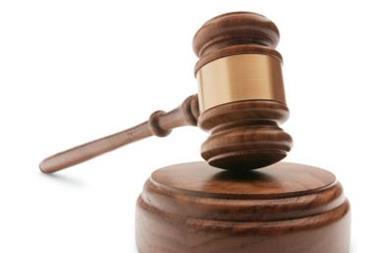A practical look at some of the procedural options open to a victim of fraud in England, the Netherlands and the United Arab Emirates

For a claimant looking to bring a claim against a fraudster, the risk of that fraudster dissipating their assets before any judgment can be enforced against them is significant. The courts in England, The Netherlands and the United Arab Emirates (UAE) have each developed mechanisms to preserve assets pending the outcome of such a claim. Click here to read as a PDF
England and Wales
The English court has the power to grant a freezing order or injunction over assets situated both in and outside the jurisdiction (the broader order being a worldwide freezing order, or WFO). Such orders typically prohibit the affected party (the respondent) from disposing of, or dealing in, their assets. Freezing orders (including WFOs) can be sought in support of domestic or foreign civil proceedings (including arbitral proceedings), so long as a real connection with England and Wales can be shown. WFOs are particularly attractive to claimants given that they are a mechanism by which all of a respondent’s assets across the world can be frozen by way of a single application in one court. This can obviate the need (and the associated time and cost) for the claimant to apply for freezing relief in each jurisdiction in which the respondent holds, or is suspected of holding, assets.
Freezing orders are a powerful tool in the fight against fraud and have been described as “one of law’s two ‘nuclear’ weapons” (the other being the search order).
Application for a freezing order or WFO
A party can apply for a freezing order at any stage in proceedings, including before issuing a claim, and even after judgment. The key question for the court is whether it would be “just and convenient” in all the circumstances of the case to grant such an order.
An application for a freezing order is usually sought without the knowledge of, or notice to, the respondent, and on an urgent basis. The application will be supported by evidence in the form of a sworn affidavit and, typically, will be considered by a judge at a private hearing, without the respondent being represented. In such circumstances, the applicant must give full and frank disclosure to the court in its evidence, which will need to demonstrate that the applicant has a good arguable case against the respondent, and that a risk of dissipation of the respondent’s assets exists that, if it were not prevented, would frustrate the enforcement of any judgment entered in the applicant’s favour.
In consideration for obtaining the freezing order, the applicant will normally be required to provide an undertaking to pay damages to the respondent if it later turns out that the order should not have been made, and the respondent has suffered loss as a consequence. This undertaking may be ordered to be fortified, for example, by some form of bank guarantee or payment into court. Further, if the claim itself is not yet issued, the applicant will have to undertake to issue it in short order following the application hearing.
Following granting the freezing order, the court will fix a further hearing date at which it will hear submissions from the applicant and respondent, before determining whether it is appropriate for the freezing order to continue.
Where a claimant wants to enforce a WFO in a foreign jurisdiction, they should first apply to the English court for permission to do so. Evidence in support of such an application must contain all the information necessary to enable the court to reach an informed decision. In considering all of the relevant circumstances and options, the court will grant permission only if is just and convenient for the purpose of ensuring the effectiveness of the WFO. The court will not grant permission if to do so would enable the applicant to obtain relief in the foreign jurisdiction that is superior to the relief given by the English freezing order. The claimant must then seek to have the WFO recognised by the court in the relevant foreign jurisdiction.
Effects of a freezing order
A freezing order prohibits the respondent from disposing of, or dealing with, their assets. It can be made to restrain any asset against which a judgment can be enforced. Any asset the respondent receives after the granting of the freezing order forms part of the respondent’s assets and are typically also subject to the order’s terms. Usually, however, the freezing order is limited to the value of the underlying claim (which may include interest and costs) and will include certain exceptions, typically allowing the respondent to deal in the ordinary course of business, and an allowance for reasonable living expenses and legal costs.
Incurring further indebtedness does not necessarily constitute breach of a freezing order, and the court has also held that the ability to draw down a loan (this point is under appeal), draw against an overdraft facility, or use a credit card , does not constitute an asset which would be available to satisfy a judgment.
Freezing orders usually require the respondent to provide evidence of their assets within a set time period, so that the order can be policed effectively. Breach of a freezing order may constitute a contempt of court, and the court has the power to fine, imprison, or seize the assets of a breaching party. Such penalties can be enforced only on parties within the jurisdiction, but this includes those only travelling through the jurisdiction (for example, changing flights at an airport).
A freezing order can also affect third parties on notice of its existence. Such third parties must not deliberately aid and abet a breach by the respondent of the terms of the order, and can also be held in contempt of court for participating in any such breach. A well-advised applicant will ensure that the freezing order is notified to relevant third parties (typically banks or other entities holding assets on behalf of the respondent) so as to make the order as effective as possible.
It is of note that a freezing order does not confer on the applicant any security or priority over the assets frozen. When it comes to enforcement of a judgment therefore, the applicant/claimant will still rank behind the fraudster’s secured creditors.
The Netherlands
The remedy for preservation of assets in the Netherlands is a prejudgment attachment. A prejudgment attachment can be levied on all of the defendant’s assets located in the country. Although determining the location of an asset will usually be straightforward, for receivables (such as bank accounts) the most common view is that the location of the party that owes moneys to the defendant is decisive. Therefore, an attachment could be levied on the defendant’s bank account with any bank located in the Netherlands, regardless of the defendant’s location.
In summary, a Dutch prejudgment attachment is an easy, fast and affordable way to preserve a defendant’s assets located in the Netherlands. However, (as in the case of an English freezing order) in the event that the attachment eventually turns out to be unlawful, the attaching party may be held liable in damages.
Application for a prejudgment attachment
A request for an order to levy a prejudgment attachment must be made on paper and filed by a Dutch attorney. The request should state the claim against the defendant and should be supported by relevant exhibits.
The claimant must specify the assets to be subject to the attachment. In the Netherlands, information on a defendant’s assets can be obtained from various sources such as the Land Registry office and the Commercial Register. In certain cases (for example an attachment over shares or land), the claimant must state (but need not prove) why they fear the assets will be dissipated if the order is not made.
The interim relief judge will make an assessment on the apparent facts, usually within a few days. Although the default position is that the attachment proceedings are between the court and the applicant only and the defendant will not be consulted or notified, some district courts (for example, Amsterdam) offer the option of a “grey attachment” (grijs maken van beslag). This allows a defendant who fears an attachment order to notify the court that it would like to be consulted before any attachment order is made. The court is not obliged to take this into account, but will in general discuss this with the applicant before notifying the defendant.
Effects of a prejudgment attachment
Once the attachment order has been made, the defendant may not transfer and/or encumber those assets. Further, any attached receivables may not be paid to the defendant.
In contrast to the position in England and Wales, the attachment order confers on the claimant security to enforce its judgment debt against the attached assets, in the event of judgment in the claimant’s favour in the main proceedings.
The defendant may apply for the attachment to be lifted. Similar to the situation in England and Wales, the interim relief judge will lift the attachment only if: the claim for which the attachment is made is unfounded on its face; the attachment is unnecessary; or the defendant furnishes adequate security for the claim for which the attachment is made (for example, a bank guarantee).
Main proceedings
The district court will determine a term for filing the claim in the principal action, usually two to four weeks after the (first) attachment has been levied. If the claim is not brought within the specified period, the attachment will lapse.
If the claimant’s case is not successful in main proceedings, once the judgment becomes final, the attachment is cancelled by way of law. The prejudgment attachment is considered unlawful and the claimant is, in principle, liable for damages incurred as a result of the attachment. In deciding whether damages are payable, the court will consider all the relevant facts and circumstances. If, for example, the attachment has been made frivolously, or for an excessive amount, the claimant may be liable. However, it is uncommon for damages to be sought in this situation, since the defendant is required to prove the damage caused to it by the attachment, which is often difficult.
The UAE
A number of different legal systems operate in parallel in the UAE. In summary, the legal system is a combination of civil and Islamic laws with three primary sources: federal legislation, local legislation (at individual Emirate level) and sharia law. Concurrent federal and Emirate legislative jurisdiction operates in relation to many aspects of business and commerce.
Four of the seven Emirates within the UAE have elected to transfer the administration and supervision of their judicial systems to the UAE Federal Judicial Authority with only Abu Dhabi, Dubai and Ras Al Khaimah operating their own legal systems alongside the federal system.
Application for an attachment order
It is possible to obtain orders from the various courts in the UAE to preserve assets by means of an attachment order (which is akin to a freezing injunction) until conclusion of proceedings, that is, final judgment. There are also circumstances in which the public prosecutor and UAE Central Bank may have a role in the freezing of assets.
The UAE judiciary has a significant degree of discretion in relation to the application of the law to the facts of the case. This is, in part, owing to the absence of a system of binding precedent under UAE law and the fact that (as a result) the test to be applied in determining whether to grant an attachment order is not as prescriptive as in many jurisdictions.
In essence, the court will likely grant such an order if it considers that it has jurisdiction and there are reasonable grounds to show that the assets will be lost before judgment can be entered against the defendant.
An application may be made without notice to the defendant, but formal legal proceedings must be commenced within eight days of an attachment order being put into effect. The defendant has the opportunity to object to the attachment after being informed of its existence.
Practically, the main difficulty is likely to be identifying the assets against which such an order can be applied. It is very difficult, for example, to prove title to real property within the UAE owing to restricted access to the register that records ownership. It is possible to obtain attachments over moveable property (including shares) and also to freeze bank accounts, particularly if details of specific accounts are known.
The Dubai International Financial Centre (DIFC)
An analysis of the options available for the preservation of assets within the UAE would be incomplete without mentioning the DIFC Courts. The DIFC operates as a financial free zone within the Emirate of Dubai with a special legal status by virtue of which it is granted the power to independently legislate civil and commercial matters falling under its jurisdiction. The DIFC Courts operate within the DIFC as an independent common law judiciary. Unlike other courts within the UAE, the language used in the DIFC Courts is English.
The DIFC Courts offer a number of forms of interim remedy that will be familiar to practitioners in other common law jurisdictions. The DIFC Court rules are based on the English High Court Civil Procedure Rules and provide for a variety of interim remedies to preserve assets during (and/or prior to the commencement of) proceedings including freezing orders (with application to assets both inside and outside the jurisdiction) and delivery-up orders as well as remedies at the enforcement stage such as execution against assets, attachment of future assets and earnings,
stop orders and charging orders. However, the practical difficulties outlined above in respect to the identification/ownership of assets within the UAE remain.
This article provides an overview of some of the remedies available to combat fraud in England, the Netherlands, and the UAE. Although few jurisdictions have an equivalent of the worldwide freezing order available under English law, many other jurisdictions have their own asset preservation or attachment remedies, on which legal advice should be sought.
Jeremy Andrews is a partner, Sarah McMurray is a senior associate, Oliver Felton is an associate and Maria Scott is a trainee solicitor at DLA Piper UK LLP, Ewald Netten is a partner and Dieuwertje de Leeuw is a senior associate at DLA Piper Nederland NV and Adam Vause is a partner at DLA Piper Middle East LLP




















No comments yet